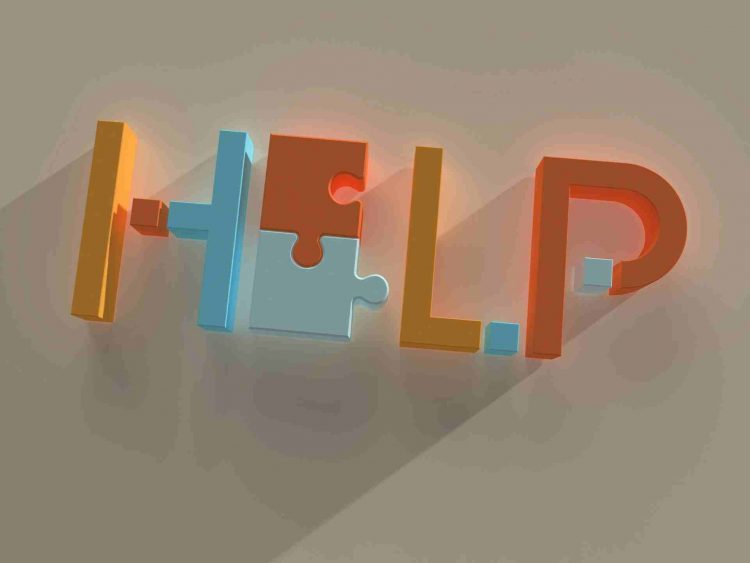The complexity of donor relationship management combined with fundraising campaigns, volunteer coordination and compliance requirements often results in an overwhelming experience. A Charity CRM (Customer Relationship Management system) becomes essential at this point. The solution for leading charities to optimize operations, maintain supporter engagement and achieve fundraising efficiency frequently depends on their implementation of an effective CRM system.
Our guide provides all the necessary information charity managers require to understand CRM software including its definition, importance, functionality, and selection process for their organisation.
What is a Charity CRM?
A Charity CRM serves as a centralized platform that enables nonprofits and charitable organizations to maintain their connections with donors, volunteers, fundraisers, and beneficiaries. The system functions as the organisational digital hub which supports smooth handling of outreach initiatives and fundraising operations along with financial oversight and communication management.
Charity CRMs provide distinct capabilities for non-profits that general business CRMs lack because they include specialised features such as Gift Aid tracking and donation management. An effective CRM system enhances charitable operations through improved efficiency and donor engagement while leading to better fundraising results.
Why Do Charities Need a CRM?
Numerous charities continue to depend on old spreadsheets alongside disparate systems and manual procedures when managing donor relationships. Such techniques might suffice for petite groups during initial stages but rapidly lose effectiveness when a charity expands. A CRM system ensures better management of essential processes through automation and optimization which leads to time savings and error reduction while strengthening supporter connections.
Key Benefits of Using a Charity CRMCentralised Data Management
The CRM solution eliminates the need for multiple spreadsheets and multiple platforms. CRM systems centralize donor, volunteer, and campaign data within one protected environment.
Access all donation history and contact details along with communication logs and event participation data in one centralized location.
Improved Donor Relationships & Retention
Monitor how donors progress from their initial contact to becoming long-term supporters.
Customise communications for donors by examining their donation patterns and personal interests.
Use automated thank-you emails along with impact reports and customized donation appeals to maintain donor engagement.
Efficient Fundraising Management
Manage fundraising campaigns by planning, executing, and monitoring them through one central dashboard.
Utilize donor insights to identify appropriate supporters for each specific campaign.
Manage and monitor all donation channels including direct debits and standing orders both online and offline.
Gift Aid Tracking & Automation
Secure Gift Aid software integration to claim every donation that qualifies.
The system automates Gift Aid claims and produces necessary reports to fulfill HMRC requirements.
Seamless Volunteer Management
Maintain records of volunteer availability alongside their shift schedules and total hours worked.
Volunteers receive automated reminders through email and SMS systems for efficient communication.
Maintain detailed logs of volunteer training sessions and skill sets alongside their individual preferences.
Better Financial Oversight
Charities can achieve real-time financial tracking through integration with accounting software solutions like Xero.
Generate financial statements required for board meetings while preparing grant applications and conducting audits.
Ensure transparency and accountability in donation allocation.
Automation & Workflow Efficiency
Develop automated workflows to streamline repetitive processes like donation receipts and follow-up activities while organizing event invitations and fundraising appeals.
Eliminate administrative tasks to allow more time for meaningful work.
Compliance with GDPR & Data Security
Built-in security measures help protect supporter data by implementing both access controls and encryption systems.
Maintaining donor trust alongside legal safety requires strict adherence to UK GDPR regulations.
Effortlessly handle your marketing communication consents through a seamless tracking system.
Data-Driven Decision Making
Create real-time reports and analytics that track fundraising success, campaign effectiveness and donor engagement levels.
Discover patterns and trends that offer opportunities to refine fundraising approaches.
Scalability & Future-Proofing
A CRM grows with your charity. No matter if you represent a local community organization or a nationwide non-profit institution you can count on the system to scale with your growth.
Ensure your charity remains resilient by monitoring the latest trends in digital fundraising.
Core Features of a Charity CRM
Not all CRMs are created equal. Charity-focused CRMs provide features specifically designed to support non-profit organizations. Explore these essential functionalities that you should prioritize.
1. Donor & Supporter Management
- Develop comprehensive donor profiles which record donation histories and track both engagement levels and interaction details.
- Organize your donor base into groups such as one-time donors and major donors to enable focused communication efforts.
- Automate reminders for donor stewardship activities.
2. Fundraising & Campaign Tracking
- Keep track of donations live through multiple fundraising platforms.
- Measure campaign success by evaluating donation totals along with conversion rates and ROI.
- Connect your system to fundraising platforms including JustGiving, Enthuse, and Crowdfunder.
3. Event & Volunteer Management
- Register attendees and volunteers for events.
- Manage shift scheduling and volunteer roles.
- Automated reminders and follow-ups should be sent to improve participation and attendance rates.
4. Gift Aid Processing
- Identify and process Gift Aid-eligible donations automatically.
- Generate compliant reports for submission to HMRC.
5. Email & SMS Communication Tools
- Deliver custom emails and text messages to donors while extending personalized communications to volunteers and beneficiaries.
- Automate thank-you messages and campaign updates.
- Track email engagement and donor response rates.
6. Financial & Accounting Integrations
- Charities can integrate their systems with Xero while QuickBooks offers streamlined bookkeeping solutions.
- Maintain precise records of all donation income together with grant funding and operational expenses.
- Generate financial reports for compliance and transparency.
7. Reporting & Analytics
- Monitor fundraising performance by accessing real-time dashboards that show donor insights.
- Design custom reports that meet the specific needs of board members, stakeholders, and funders.
- Employ AI-driven forecasts to pinpoint donors who may lapse and refine your retention tactics.
8. GDPR & Compliance Tools
- Track marketing consent and communication preferences.
- Manage and protect personal information according to GDPR compliance standards.
- Maintain compliance by automating the removal of inactive contact data.
How to Choose the Right Charity CRM
The wide range of charity CRM UK non profits have to choose from creates a complex decision-making process. Select the right system by following this step-by-step approach.
Assess Your Needs
- What main obstacles does your charity organization face? Admin workload? Gift Aid processing?)
- Identify must-have features vs. nice-to-haves.
Consider Your Budget
- While some CRM providers charge based on the number of users, other providers provide price reductions for nonprofit organizations.
- Make sure to inquire about extra charges related to system integrations as well as training and customisation needs.
Ensure User-Friendliness
- The best CRM systems provide simple navigation so that users without technical backgrounds can use them easily.
- Try out a free trial or demonstration before making any final decisions.
- Check Integration Capabilities
- Does the CRM system support integration with your current fundraising platforms along with accounting and email marketing tools?
Look for Scalability
- Select a CRM system that will expand with your organization and continue to meet evolving requirements.
- Read Reviews & Get Recommendations
- Seek input from other UK charities to understand how various CRMs work in practical applications.
A CRM is a Game-Changer for Charities
A Charity CRM functions as the essential structural component that supports modern non-profit operations beyond just serving as a database. Charities benefit from enhanced management across all functions when they use a well-implemented CRM system for donor engagement and fundraising as well as volunteer coordination and financial tracking.
By investing in the right CRM, your charity can:
✅ Build stronger relationships with donors
✅ Increase fundraising success
✅ Reduce admin burden
✅ Ensure compliance and security
✅ Make smarter, data-driven decisions
Your charity needs to adopt technology to improve operations if outdated spreadsheets and disconnected systems remain part of your workflow. Utilising an effective CRM solution will save time and enhance efficiency while increasing your overall impact.
How a Charity CRM Helps Fundraising Enormously
The success of any charity depends upon fundraising yet it remains one of their most significant hurdles. The combination of tracking donors along with managing campaigns and personalised appeals and ensuring fundraising initiatives proceed without issues results in overwhelming workloads. The introduction of a Charity CRM system brings fundamental transformation to how charities handle their fundraising operations.
A CRM goes beyond a donor database by serving as a robust tool that enhances fundraising by increasing monetary support and strengthening supporter relationships while streamlining operations. We will analyze the specific ways in which a CRM system revolutionizes charity fundraising operations.
1. Targeted and Personalised Donor Communication
The era of mass appeals has ended. The CRM system enables direct communication with donors because they want personalized messages that address their individual needs.
Segment Your Donors: Your charity CRM enables donor segmentation using patterns of donations and levels of engagement. For example, you can segment them into:
- Donors who have made only one contribution need motivational outreach to inspire repeat donations.
- Regular givers who deserve personalised appreciation.
- Lapsed: The right message can successfully re-engage donors who have stopped giving.
- Major donors require personalised strategies that focus on relationship development.
- People who attend events might be willing to support a certain campaign.
Personalised Fundraising Appeals: Instead of generic emails you can create specific donation requests by analyzing how each donor has given before. Donors who have supported an emergency appeal previously demonstrate greater likelihood to engage with similar campaigns in the future. CRM software provides a simple way to monitor preferences while enabling organizations to communicate appropriate messages to specific individuals.
Automated Follow-Ups & Thank Yous: When donors receive appreciation, they tend to make additional donations. CRM systems generate personalized thank-you emails and donation impact reports along with reminders for recurring donations to maintain strong donor relationships.
2. Automating Fundraising Processes & Saving Time
The labor-intensive nature of manual processes consumes resources that should be dedicated to relationship-building and strategic planning. A CRM system helps your team increase fundraising efficiency by streamlining repetitive tasks which reduces stress.
- Donation Processing & Tracking: Eliminate the time-consuming task of entering every donation into a spreadsheet by hand! The CRM system records donations without manual input regardless of the source which may include online platforms, direct bank transactions, or fundraising events.
- Event Management: Organising fundraising events? CRM systems enable fundraising events teams to monitor registration records, ticket sales, attendee lists, and post-event follow-up activities. Several CRMs offer seamless integration with Eventbrite and JustGiving platforms to synchronize donor interactions.
- Recurring Giving Management: Through managing monthly giving programmes CRMs enable charities to send automated reminder messages and updates which help maintain donor engagement.
- Automating fundraising workflows enables your charity to dedicate more time to donor engagement and strategic planning instead of dealing with administrative issues.
3. Maximising Gift Aid Contributions
Your charity fails to maximize Gift Aid when it doesn’t take full advantage of this tax benefit. While Gift Aid enables UK charities to increase eligible donations by 25% at no additional cost to donors, manual processing and tracking of claims consumes significant time and creates opportunities for mistakes.
- Automated Gift Aid Tracking: Gift Aid-eligible donations are automatically identified by a CRM which securely stores donor signed declarations.
- Seamless HMRC Reporting: A CRM eliminates spreadsheet challenges by producing ready-to-submit Gift Aid reports which make the claims process more efficient.
- Ensuring Compliance: Charities can maintain full compliance with HMRC regulations through their CRM system by monitoring donor consent for Gift Aid claims.
An integrated Gift Aid CRM allows charities to recover thousands of pounds of additional funding without increasing their administrative workload.
4. Smarter Fundraising Campaigns with Data-Driven Insights
Fundraising without data is like driving blindfolded. Real-time campaign insights from a CRM empower you to make smarter decisions that drive better results.
- Track What Works: Find out which fundraising campaigns yield the best outcomes by comparing online appeals to gala dinners and corporate sponsorship drives.
- Identify Donor Trends: Charities can use CRMs to analyze donor behaviour patterns including donation frequency and amounts as well as effective appeal strategies.
- Predict Future Giving: Specific CRMs employ AI-driven analytics to predict donor re-engagement opportunities and determine optimal outreach times.
Organisations can use these insights to enhance their fundraising methods while investing in successful channels and maximizing donor communications.
5. Integrating with Fundraising Platforms & Accounting Software
Charities utilize external fundraising software such as JustGiving, Enthuse, Crowdfunder along with peer-to-peer fundraising platforms. Without CRM integration with these systems you must manually transfer donation data which leads to time wastage and more errors.
With the right CRM, you can:
✅ The CRM system enables automatic synchronization of fundraising campaign data to ensure all donations are recorded without the need for manual input.
✅ Charities can link their systems to accounting platforms such as Xero to streamline financial reporting while minimizing reconciliation mistakes.
✅ Use Mailchimp integration to build donor relationships through automated and segmented email campaigns.
When a CRM system enables seamless integration between fundraising and financial data systems organizations can save time, increase data accuracy and simplify financial planning tasks.
6. Strengthening Major Donor & Corporate Partnerships
High-value supporters such as major donors and corporate sponsors require a specially developed engagement strategy. These supporters require more than regular donations because they want sustained relationship growth, tailored communications, and updates that show their contribution’s impact.
A CRM helps manage these relationships by:
- Maintain comprehensive records of each meeting and phone call along with other interactions involving major donors.
- The CRM system enables organizations to deliver tailored impact reports demonstrating the specific ways major donors’ contributions create positive effects.
- Efficient management of corporate sponsorships and long-term funding partnerships involves continuous tracking and oversight.
A CRM system enhances donor development by providing organisation which leads to higher chances of obtaining repeat gifts and larger financial contributions.
7. Boosting Peer-to-Peer & Community FundraisingCharities benefit greatly from community-driven fundraising yet struggle to manage it without the appropriate system. Through CRM systems charities can maintain oversight and assistance for peer-to-peer fundraising activities.
- The CRM system enables fundraisers to build separate fundraising pages that remain connected to the primary CRM database of your charity.
- Monitoring each fundraising initiative while acknowledging the most significant donors.
- Automated emails deliver updates along with praise and motivational messages to sustain engagement among fundraisers.
- Charities that utilize a CRM system enable their supporters to conduct fundraisers which expands their reach while boosting their potential donations.
Final Thoughts: A CRM is a Fundraising Powerhouse
A CRM is essential for charities that aim to raise more money while retaining donors and running campaigns more effectively.
With a charity CRM, you can:
✅ Personalise your fundraising appeals for maximum impact.
✅ Automate processes and reduce admin time.
✅ Track campaign performance and make data-driven decisions.
✅ Maximise Gift Aid contributions effortlessly.
✅ Strengthen donor relationships and increase retention.
✅ Integrate with fundraising platforms and financial tools.
When charities deploy CRM systems effectively they discover a powerful asset which enables smarter fundraising and eliminates unnecessary effort. Charities dependent on outdated systems or manual methods should now consider investing in a CRM solution which drives growth and enhances operational efficiency while maximizing impact.
Has your charity reached the point where it can begin to maximize its fundraising potential through strategic improvements?








